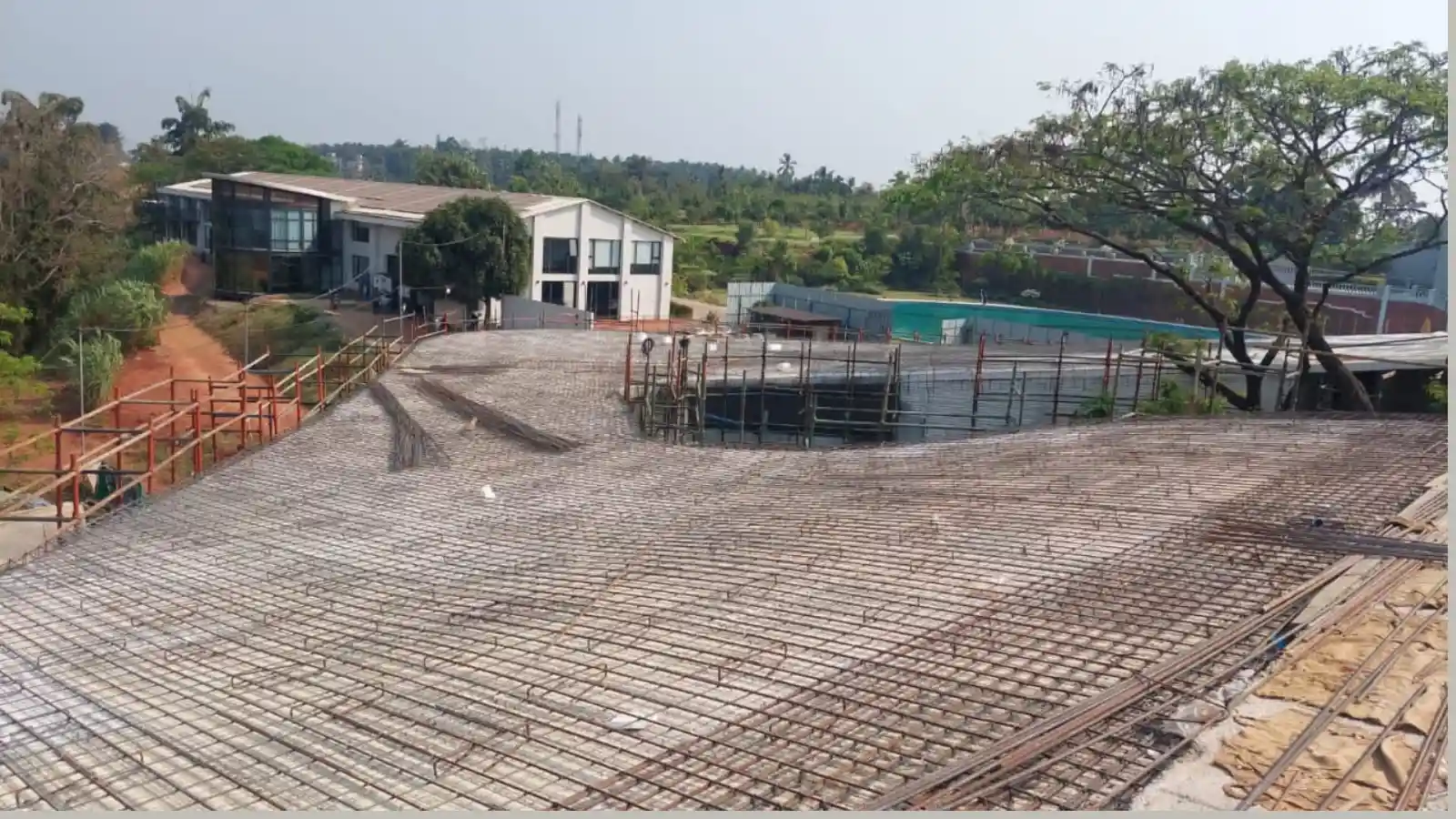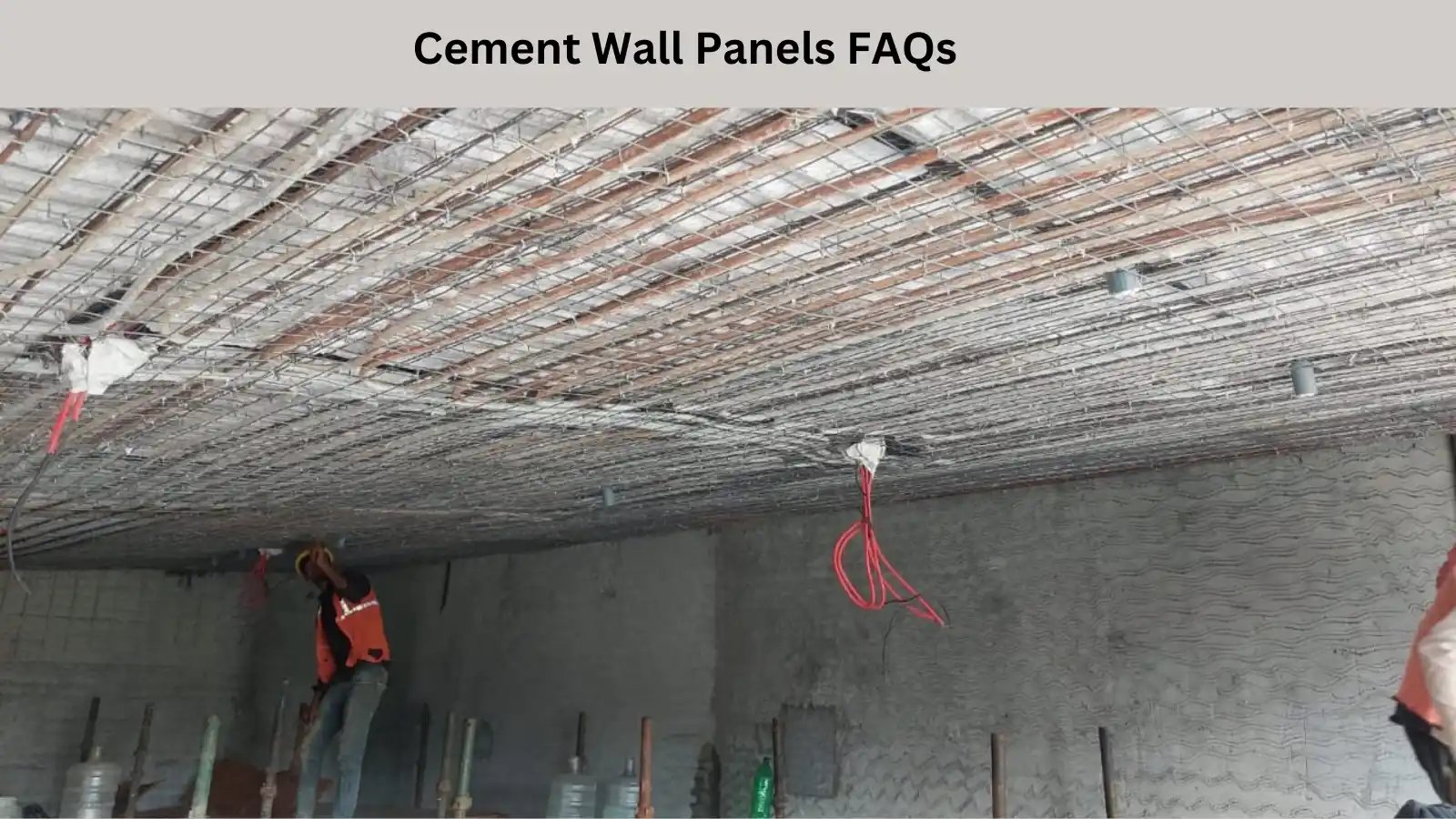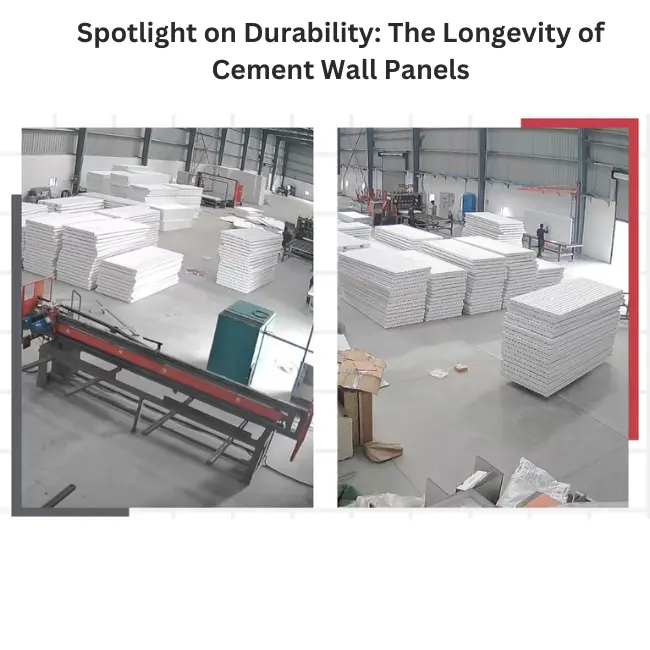In the realm of construction and architecture, durability stands as a cornerstone of quality. Among the myriad materials available, cement wall panels emerge as stalwarts of endurance, withstanding the tests of time and weather. Their resilience, coupled with a blend of versatility and aesthetic appeal, has made them a preferred choice for builders and designers alike. Let’s delve into the realm of cement wall panels, exploring their composition, advantages, and the reasons behind their enduring popularity.
Table of Contents
ToggleCement Wall Panels Composition and Construction
Cement wall panels, often referred to as concrete panels, are primarily composed of cement, aggregates (such as sand and gravel), and water. Reinforcement materials like steel bars or fibers may also be added to enhance strength. These panels are typically precast or cast in situ, allowing for various sizes, shapes, and textures to suit diverse architectural needs.
The production process involves mixing the ingredients to form a viscous slurry, which is then poured into molds or formwork. After curing, the panels gain structural integrity, capable of withstanding significant loads and environmental stresses.
Advantages of Cement Wall Panels
Durability:
The foremost advantage of cement wall panels lies in their durability. Unlike traditional materials prone to rot, decay, or termite damage, cement panels offer long-lasting performance, making them ideal for both interior and exterior applications.
Strength:
Cement wall panels exhibit exceptional strength, ensuring structural stability even in adverse conditions. This strength not only enhances safety but also allows for the creation of open, airy spaces with minimal structural support.
Weather Resistance:
These panels boast excellent resistance to weather elements, including rain, wind, and temperature fluctuations. Unlike wood, which may warp or rot when exposed to moisture, cement panels maintain their integrity, making them suitable for outdoor use in various climates.
Fire Resistance:
Cement is inherently fire-resistant, making cement wall panels a preferred choice for buildings where fire safety is paramount. They contribute to containing fires, thereby safeguarding lives and property.
Also, read
Considering EPS Panels? 7 Factors You Should Take Into Account
Low Maintenance:
Once installed, cement wall panels require minimal maintenance compared to other materials. Routine cleaning and occasional inspections are usually sufficient to keep them in optimal condition, reducing long-term maintenance costs.
Design Flexibility:
From smooth finishes to textured surfaces, cement wall panels offer a wide range of design options to suit diverse aesthetic preferences. They can mimic the appearance of natural stone, wood, or brick, providing architects and designers with ample creative freedom.
Sustainability:
Cement, a key component of these panels, is readily available and recyclable, contributing to their sustainability profile. Additionally, their longevity reduces the need for frequent replacements, further minimizing environmental impact.
Applications of Cement Wall Panels

Cement wall panels find application across various sectors, including residential, commercial, and industrial construction. Some common uses include:
Exterior Cladding:
Cement panels serve as durable and visually appealing cladding materials for both residential and commercial buildings, enhancing curb appeal and weather protection.
Interior Walls:
These panels are employed for interior wall partitions, offering structural stability and acoustic insulation. Their sleek appearance lends a modern touch to residential and commercial interiors alike.
Facade Renovation:
In renovation projects, cement wall panels provide a cost-effective solution for upgrading facades, revitalizing aging buildings with a fresh, contemporary aesthetic.
Infrastructure Projects:
Cement panels are utilized in infrastructure projects such as bridges, tunnels, and sound barriers, where durability and longevity are paramount.
Key Takeaways
In construction, EPS durability reigns supreme, and cement wall panels emerge as champions of longevity. Their exceptional strength, weather resistance, and design versatility make them indispensable components of modern architecture. Whether adorning the facades of skyscrapers or lining the interiors of cozy homes, these panels stand as enduring symbols of resilience and reliability. As builders and designers continue to seek sustainable, high-performance materials, cement wall panels are poised to maintain their prominence, shaping the landscape of construction for generations to come.
FAQs

1. Are cement wall panels suitable for both interior and exterior applications?
Yes, cement wall panels are highly versatile and can be used both indoors and outdoors. They provide durable and weather-resistant solutions for exterior cladding while offering structural stability and aesthetic appeal for interior walls and partitions.
2. How do cement wall panels compare to traditional materials like wood or brick in terms of durability?
Cement wall panels outperform traditional materials like wood or brick in terms of durability. Unlike wood, which may rot or warp over time, and brick, which may require repointing or replacement, cement panels offer long-lasting performance with minimal maintenance requirements.
3. Can cement wall panels be customized to suit specific design preferences?
Yes, cement wall panels offer a wide range of design options to suit various architectural styles and preferences. They can be manufactured with different finishes, textures, and colors, allowing architects and designers ample creative freedom to achieve their desired aesthetic.
4. Are cement wall panels environmentally friendly?
Cement wall panels contribute to sustainability in construction in several ways. Cement, a key component of these panels, is recyclable, and the panels themselves have a long lifespan, reducing the need for frequent replacements. Additionally, their energy-efficient properties can contribute to overall building sustainability.
5. What maintenance is required for cement wall panels?
Cement wall panels require minimal maintenance compared to other materials. Routine cleaning with mild soap and water is usually sufficient to remove dirt and debris. Periodic inspections for cracks or damage are recommended, although repairs are infrequent due to the panels’ durability.



